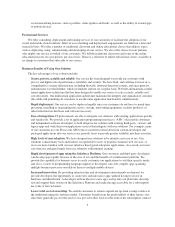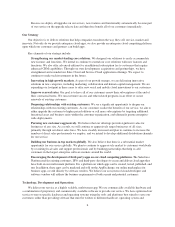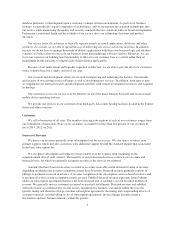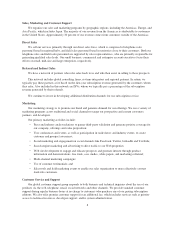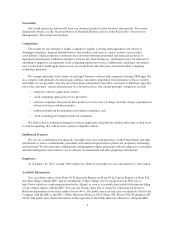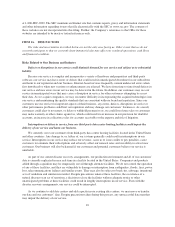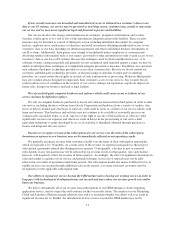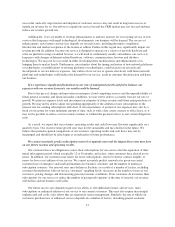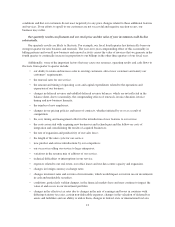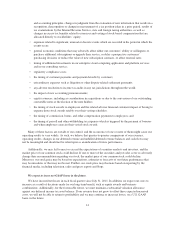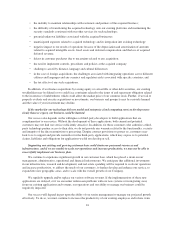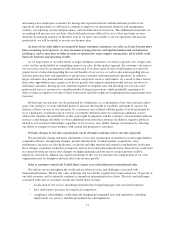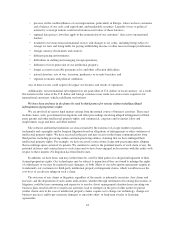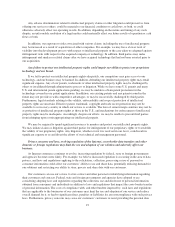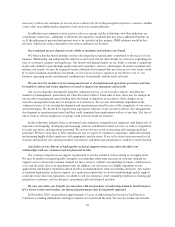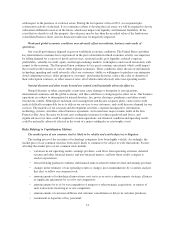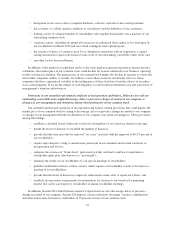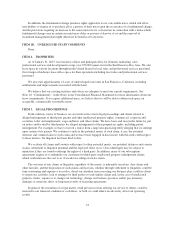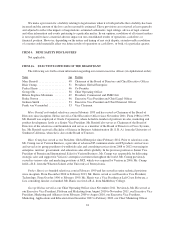Salesforce.com 2013 Annual Report Download - page 18
Download and view the complete annual report
Please find page 18 of the 2013 Salesforce.com annual report below. You can navigate through the pages in the report by either clicking on the pages listed below, or by using the keyword search tool below to find specific information within the annual report.and accounting principles, changes in judgment from the evaluation of new information that results in a
recognition, derecognition or change in measurement of a tax position taken in a prior period, results of
tax examinations by the Internal Revenue Service, state and foreign taxing authorities, as well as
changes in excess tax benefits related to exercises and vesting of stock-based compensation that are
allocated directly to stockholders’ equity;
• expenses related to significant, unusual or discrete events which are recorded in the period in which the
events occur;
• general economic conditions that may adversely affect either our customers’ ability or willingness to
purchase additional subscriptions or upgrade their service, or delay a prospective customers’
purchasing decision, or reduce the value of new subscription contracts, or affect renewal rates;
• timing of additional investments in our enterprise cloud computing application and platform services
and in our consulting service;
• regulatory compliance costs;
• the timing of customer payments and payment defaults by customers;
• extraordinary expenses such as litigation or other dispute-related settlement payments;
• any adverse resolution to income tax audits in any tax jurisdictions throughout the world;
• the impact of new accounting pronouncements;
• equity issuances, including as consideration in acquisitions or due to the conversion of our outstanding
convertible notes at the election of the note holders;
• the timing of stock awards to employees and the related adverse financial statement impact of having to
expense those stock awards ratably over their vesting schedules;
• the timing of commission, bonus, and other compensation payments to employees; and
• the timing of payroll and other withholding tax expenses which is triggered by the payment of bonuses
and when employees exercise their vested stock awards.
Many of these factors are outside of our control, and the occurrence of one or more of them might cause our
operating results to vary widely. As such, we believe that quarter-to-quarter comparisons of our revenues,
operating results, changes in our deferred revenue and unbilled deferred revenue balances and cash flows may
not be meaningful and should not be relied upon as an indication of future performance.
Additionally, we may fail to meet or exceed the expectations of securities analysts and investors, and the
market price of our common stock could decline. If one or more of the securities analysts who cover us adversely
change their recommendation regarding our stock, the market price of our common stock could decline.
Moreover, our stock price may be based on expectations, estimates or forecasts of our future performance that
may be unrealistic or that may not be met. Further, our stock price may fluctuate based on reporting by the
financial media, including television, radio and press reports and blogs.
We expect to incur net GAAP losses in the future.
We have incurred net losses in each fiscal quarter since July 31, 2011. In addition, we expect our costs to
increase as a result of decisions made for our long-term benefit, such as equity awards and business
combinations. Additionally, for the foreseeable future, we must maintain a substantial valuation allowance
against our deferred income tax asset balance. If our revenue does not grow to offset these expected increased
costs, we will not be able to return to profitability and we may continue to incur net losses, on a U.S. GAAP
basis, in the future.
14



